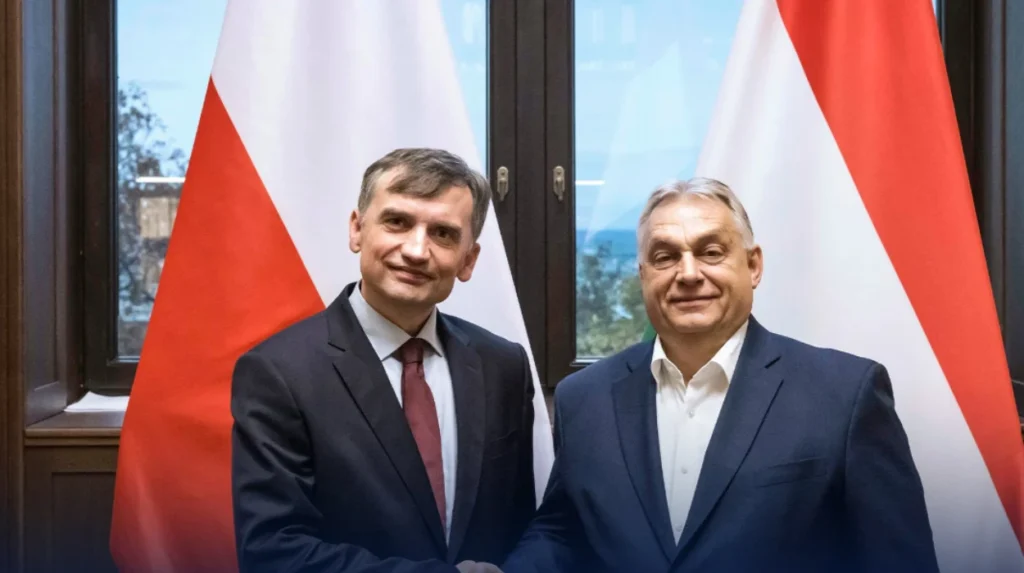Hungarian Prime Minister Viktor Orbán has publicly expressed strong support for Zbigniew Ziobro, the former Polish justice minister who is currently threatened with arrest over serious criminal charges. Orbán’s endorsement of Ziobro has added fuel to a growing political storm between Poland’s current government under Prime Minister Donald Tusk and the opposition Conservatives linked to the previous government.
Background: Charges Against Former Polish Justice Minister
Zbigniew Ziobro, who served as Poland’s justice minister and prosecutor general under the previous Law and Justice (PiS) administration, faces 26 charges including allegations of leading an organised criminal group and embezzling tens of millions of zlotys (around $41 million) from public funds. These funds were connected to the Justice Fund, which was under Ziobro’s control, and intended to finance projects supporting victims of crime and crime prevention initiatives.
The Polish Prosecutor General’s Office has asked the parliament to lift Ziobro’s parliamentary immunity to authorize his arrest. The charges are based on testimony from witnesses and suspects, documents, and audits indicating financial damage caused by what prosecutors describe as a criminal scheme involving former officials and NGOs funded by the Justice Fund. The potential prison sentence Ziobro faces could be up to 25 years, marking a significant escalation in legal actions against officials tied to the former PiS government.
Orbán’s Meeting and Support for Ziobro
In a highly visible move, Hungarian PM Viktor Orbán met with Zbigniew Ziobro in Budapest. Orbán took to social media to share a photo of them together, alongside a message framing the charges as a politically motivated “witch hunt.” Orbán criticized the current Polish government led by Donald Tusk for persecuting opposition figures, writing,
“The pro-Brusselian Polish government has launched a political witch hunt against them. Today, I met with former Minister of Justice Zbigniew Ziobro in Budapest. The Polish Government is trying to have him arrested. All this in the heart of Europe, while Brussels stays silent. These are the absurd times we are living in.”
Ziobro himself denied applying for political asylum and insisted that he had submitted no such documents. During the meeting, according to statements from Ziobro, the discussion centered on politics, Orbán’s defense of Hungarian sovereignty, and a belief that Donald Tusk’s government is nearing its end.
Political Tensions in Poland and Hungary
The meeting is deeply controversial in Poland, where the current government quickly condemned the gesture. Prime Minister Donald Tusk responded provocatively on social media, stating,
“Either in custody, or in Budapest,”
implying that Ziobro will either face arrest in Poland or seek refuge in Hungary.
Foreign Minister Radosław Sikorski questioned whether Hungary would grant asylum to Ziobro, as it did recently to Marcin Romanowski, Ziobro’s deputy and another PiS-supported politician charged with similar alleged offences. Hungary’s decision to grant asylum to Romanowski led to diplomatic tensions, with Poland withdrawing its ambassador to Hungary in protest. Orbán has suggested more Polish politicians could be granted asylum in Hungary given the escalating political reprisals.
The ruling center-left coalition under Tusk is determined to hold former PiS officials accountable for alleged wrongdoing during their tenure, seen in the lifting of multiple immunities and prosecutions. On the other hand, the opposition PiS and its allies view these efforts as politically motivated attacks aimed at dismantling the conservative movement and its judicial reforms.
Wider European Dimensions and EU Response
Orbán’s public backing of Ziobro also highlights the deep divisions within the European Union about rule of law and sovereignty issues. Orbán condemned not only the Polish government but also the European Commission for what he perceives as the EU’s silence on the matter. He framed the situation as emblematic of a broader conflict between national conservatives and the pro-Brussels European establishment.
This aligns with ongoing tensions between Orbán’s Hungary and the EU institutions over democratic norms and judicial independence, further complicating the bloc’s internal cohesion.
Hungarian Prime Minister Viktor Orbán’s backing of former Polish justice minister Zbigniew Ziobro, amid serious criminal allegations and a potential arrest warrant, has stoked political controversy across Central Europe. Orbán framed the Polish government’s legal actions as political persecution, while Poland’s ruling coalition under Donald Tusk insists on accountability for alleged crimes linked to the previous government. With asylum already granted by Hungary to one PiS-affiliated politician and the possibility of more to come, the episode underscores the deep and widening rifts within Poland and between certain member states of the European Union.







